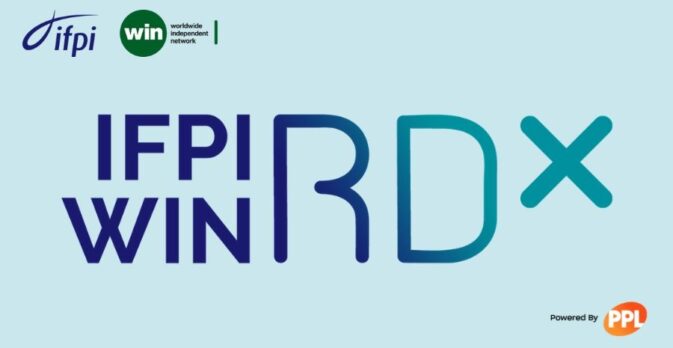Repertoire Data Exchange (RDx) explained: The technology revolutionising how music rights are managed
RDx aims to simplify music rights management, helping to ensure faster and more accurate royalty payments for performers and rights holders worldwide.

Managing music rights is complex. With recordings being used across the globe, ensuring accurate and timely royalty payments to rightsholders relies on reliable, authoritative data about the sound recordings we license.
The source of that data is critical. At PPL, we rely on accurate information provided by rightsholders – and we’re using technology to make the flow of data faster, simpler, and more consistent.
Repertoire Data Exchange, or RDx, is a central hub for sharing sound recording and video metadata between record companies and collective management organisations (CMOs) like PPL. Launched in October 2020, RDx is streamlining how data flows across the music industry, helping to make sure that the right people get paid on time.
RDx was created through a collaboration between the International Federation of the Phonographic Industry (IFPI) and the Worldwide Independent Network (WIN). After a competitive selection process, PPL was chosen to build and operate RDx, thanks in part to our expertise at handling large volumes of data.
By building a platform that uses industry-standard formats, we’re helping to simplify how data in shared between rightsholders and CMOs worldwide.
Why RDx matters to you
For performers and rightsholders, RDx is helping payments reach you faster, with fewer errors. The system highlights data conflicts, like two record companies claiming the same recording, as soon as they happen. This means issues can be resolved quickly.
RDx also streamlines the process by allowing record companies to send a single feed of data to all CMOs that need it.
Put simply, it’s helping everyone get the right data in the right place – faster.
Simplifying global music data
Before RDx, record companies had to create bespoke data feeds for every country where their recordings were used. This patchwork approach was inefficient. RDx replaces this fragmented system with a single, standardised data exchange. It validates incoming data, flags conflicts early and provides real-time feedback to record companies.
RDx also exclusively uses DDEX, the global standard for meta data exchange in the music industry. This ensures that data is consistent and reliable across the board.
“RDx allows record companies and CMOs to submit and access authoritative recording data via a single point,” explains Bryn Harry, a Global Systems Project Manager at PPL. “It simplifies the repertoire delivery and feedback processes by using standardised formats, highlights data quality issues and bring conflicts to light, which helps improve accuracy, efficiency and transparency.”
The system is also speeding up how royalties are processed. CMOs no longer need to handle individual feeds from record companies. Instead, they can access all the data they need in one place.
Fixing common problems
One of RDx’s biggest benefits is its ability to flag problems with data early on. When a record company submits a recording, RDx checks for errors and notifies the organisation straight away of any data quality issues or conflicts identified which may have a knock-on impact to a CMO’s revenue distributions to rightsholders.
For example, RDx can detect conflicts between two record companies claiming rights to the same recording. “It tells rightsholders immediately if a conflict is identified,” says Bryn. “That means they can look to resolve conflicts before they may cause a delay in payments.”
This centralised approach is already making a difference. “It’s much more scalable,” explains Bryn. “RDx gives record companies much better visibility into their data, helping them identify issues that faster, and resolve them more efficiently.”
RDx’s growing global footprint
Since launching in 2020, RDx has steadily gained traction. Major record companies such as Sony, Universal and Warner use the system, alongside independent labels including Beggars, Sentric Music and Domino. Today, it’s used across much of Western Europe and is expanding into countries like Brazil and South Africa.
“In recent months, many independent labels have on-boarded, with many more making preparations to,” notes Bryn. “Most are doing this through intermediaries such as music licensing companies (MLCs), to leverage their existing technical integrations and to remove any barriers to entry.”
The future of music rights data
The long-term goal for RDx is to become the global hub for all music rights data. For rightsholders and performers, RDx’s improvements mean a smoother process and greater confidence in how their data is managed. The sooner a recording’s rights are registered, the sooner royalties can be paid.
For the industry as a whole, RDx is a step towards greater transparency and consistency. By bringing everyone onto a centralised system, it’s reducing confusion and making it easier to track who owns what.
RDx is still evolving, but the results so far are clear. It’s improving how music rights are managed and paving the way for a more efficient, global music industry.


